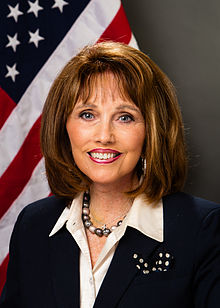
SACRAMENTO–The Senate Health Committee this evening approved Senate Bill 589 by Senator Patricia Bates (R-Laguna Niguel) that would prohibit an operator of addiction treatment facilities from providing any form of false advertising or marketing services.
“California’s hands-off approach to the addiction treatment industry has sadly led to the exploitation of vulnerable people,” said Sen. Bates, a former social worker whose beat encompassed communities ravaged by drug addiction. “I’m pleased that a bipartisan majority of the Senate Health Committee agrees that we need to prevent further exploitation. While there is still a long road ahead for my bill to become law, I am hopeful that it will gain more bipartisan support in the weeks ahead.”
Specifically, SB 589 prohibits an operator of a licensed residential treatment facility, a certified alcohol or other drug program, a recovery residence, or a third party, from providing any form of false advertising or marketing services, including making a false or misleading statement about the entity’s products, goods, services, or geographical locations. SB 589 also authorizes the California Department of Health Care Services to investigate allegations of misconduct and impose sanctions.
The goal of Sen. Bates’ bill is to protect individuals with addiction and ensure that they are receiving the treatment that they are promised. Ultimately, the measure seeks to protect those who are at their most vulnerable and seeking treatment. Marketers who knowingly and willfully make materially false statements, whether in advertising or by direct communication, with current or potential patients, should be held accountable.
Sen. Bates authored SB 589 due in part to a comprehensive investigation by the Southern California News Group (SCNG) that found that California’s hands-off approach to regulating the industry makes it easy for dishonest operators to take advantage of vulnerable individuals. According to the SCNG, they “found that destitute and homeless addicts can be worth hundreds of thousands of dollars to unscrupulous rehab centers, where those addicts often are bought, sold and exploited for their insurance payments.”
The quality of care in these facilities is not consistent and does not always adhere to a specific set of standards. In the case of Brandon Nelson, his parents were assured that he would receive therapy sessions, a case manager, a house manager, and more. This is the type of care that he needed, so his family signed him up.
Unfortunately, that is not what he received according to the SCNG: “Nelson didn’t have a team of professionals overseeing his transition — he apparently didn’t even get his medications on time, according to his parents and police reports. What they got were sales pitches, not health-care advice, the Nelsons concluded.”
Over the past year, the Legislature has recognized that consumers with substance use disorders have disabling conditions and that these consumers and their families are vulnerable. However, there are no provisions in the California Health and Safety Code to control unethical marketing practices that prey on distressed families or individuals in crisis seeking treatment. As a result, patients and their families can be misled, misdirected, and misdiagnosed by unqualified individuals.
SB 589 will head next to the Senate Appropriations Committee for its consideration at a later date.


